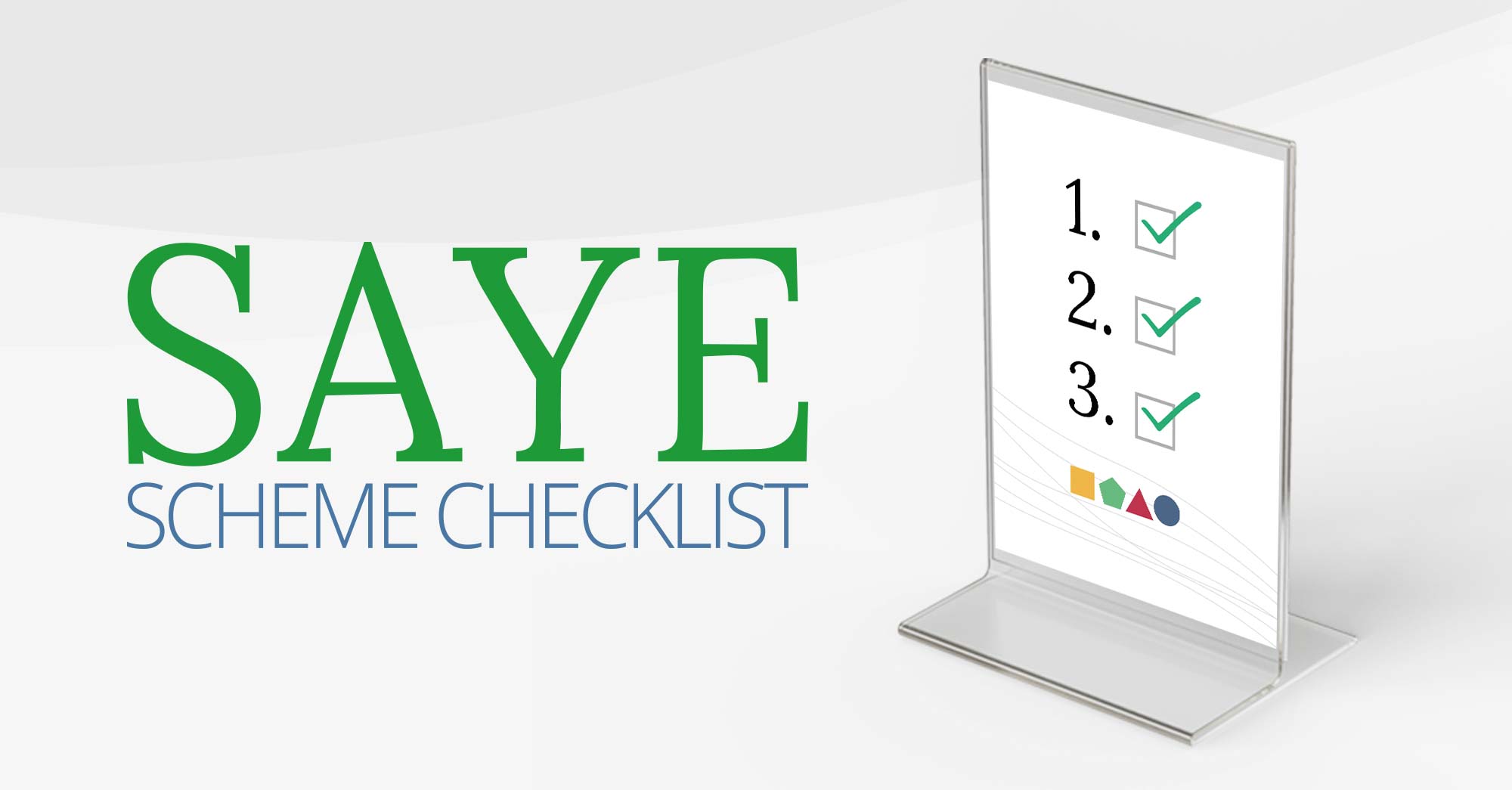A qualifying company with employees in the Republic of Ireland may operate an Irish Revenue-approved Save As You Earn (SAYE) plan.
Previously, Ireland was criticised for its regulations that restricted many companies and employees from accessing or taking full advantage of employee ownership. Budget 2020 took a large first step towards reducing these hurdles, but there have always been some options for Irish companies. One of them is the Save as you Earn (SAYE) scheme.
What is a SAYE scheme?
A SAYE scheme is a tax-efficient savings-related share option scheme, available for private and public companies including foreign parent companies that want to establish a scheme for their Irish subsidiaries. A SAYE scheme in Ireland is structured in a quite similar way to that in the UK. Skip to our comparison table here.
In this guide, we will focus on the SAYE scheme in Ireland (or Irish Sharesave scheme) and will cover the following sections:
- How does a SAYE work?
- Eligibility
- Benefits of a SAYE for employees (+Example)
- Benefits of a SAYE for employers
- What happens if employees leave the company
- Differences between UK and Irish Sharesave schemes
How does a SAYE work?
To roll out an Irish Sharesave scheme, companies usually inform staff some months before the scheme starts. It’s completely voluntary whether you want to join or not but your employer must offer the scheme to ALL employees with 3 years’ service or more. (Some employers may also offer it to employees with less service.)
To participate in it, you need to enter into a formal SAYE savings contract. When the contract begins, employees are granted the option (i.e. the right) to buy shares at a future date at a discounted purchase price (i.e. option price), using their accumulated savings from their salary.
i) Before operating the scheme
Formal approval by the Irish Revenue Commissioners (IRC) is required before a company can launch a SAYE scheme in Ireland to its employees. Read here to learn more about applications for approval.
ii) To Begin your savings contract, you’ll
- Choose how much you want to invest: Able to save between €12 and €500 per month under a SAYE contract. Savings are post-tax (i.e., after tax, USC and PRS) and are made by payroll deduction. You will save with a qualifying institution – e.g. a bank, building society, trustee savings bank and post office savings bank – under a SAYE contractual savings scheme.
- Choose how long you want to invest: 3, 5 or 7 years. Your employer may have decided it for you.
- Be confirmed the option price: The price you will be able to purchase (exercise) the shares at when the scheme ends. It can be at the market value or a discount of up to 25% of the market value of the shares at the date of grant of the option.
iii) When the contract ends, you’ll have 2 options:
- Buy shares: You can use your savings to buy some or all of the shares at the option price.
- Decide to not purchase (exercise) the shares and have all your savings returned. This may happen if the market value of the shares has fallen below the option exercise price.
Contact Global Shares today if you’re considering a SAYE for your Irish employees. We’ve walked this path with many companies.
Eligibility
A SAYE plan is an all-employee plan which means all eligible employees must be invited to participate and the shares must form part of the ordinary share capital. The details are below:
- Employees:
– an employee or full-time director of the company or participating company in the case of a group scheme; OR
– has been such an employee or full-time director during a qualifying period set by the employer; OR
– is chargeable to income tax in respect of that office or employment under Schedule E. - Shares:
– Be granted to all eligible employees and directors on similar terms, e.g. based on salary or years’ service, and
– Be fully paid up, not redeemable and not subject to any restrictions
– Must form part of the ordinary share capital
Benefits of a SAYE for employees

Tax advantages:
- No tax is charged on the grant of the share option
- No income tax is charged on the exercise of the share option*
- Don’t have to pay income tax and DIRT on interest and any bonus earned on the savings at the end of the scheme
- Any gains (i.e. the difference between the sale price and the purchase price) likely to be covered by the annual CGT exemption
*provided the option is not exercised before the third anniversary of the grant
But, you’ll be liable for
- USC (5 – 8%) and PRSI (4%) on any gains (i.e. the difference between the total market value of the shares acquired on exercise and the amount paid for the shares.)
- CGT if the gain exceeds your annual CGT allowance at the sale
An Irish Sharesave scheme tax example:
Roisin’s company invited all eligible employees to participate in the company’s SAYE scheme. She decided to enrol and here are the details:
- Amount of investment: €100 / month
- Investment period: 3 years
- Option price: €7.5 / share (She received a 25% discount on the share where its market value was €10)
After 3 years, Roisin decided to use those savings to exercise his option in full:
- Amount of savings after 3 years: €100 x 12 x 3 = €3600
- No. of shares can be purchased: €3600 / €7.5 = 480 shares
- Stock price increase to: €12 / share at vesting
- Gain at exercise: 480 x €12 – 480 x €7.5 = €2160
- Sale price: €14 / share
- Sale proceed: 480 x €14 = €6720
- Gain: €6720 – 480 x €7.5 = €3120
Tax at Grant: Nil
Tax at Exercise:
- Income tax: Nil
- PRSI @4%: €2160 x 4% = €86
- USC @8%: €2160 x 8% = €173
Tax at Sale:
- CGT: €3120 – €1270(CGT exemption) = €1850
- CGT tax @33%: €1850 x 33% = €611
Show
Flexibility & Risk Free:
In addition to being flexible to save – as little as €12 or as much as €500 per month*, you can get back the total savings once you complete the savings period in full, tax-free if you decide not to purchase the shares.
In our Equity Gateway, you can clearly view your share schemes or adjust, withdraw and suspend the payments in a few clicks. Want to know how it works? contact us for a free demo.
*cannot be changed during the contract period once the application has been accepted
Benefits of a SAYE for employers
Corporation Tax Deduction:
The costs incurred in setting up an approved SAYE scheme in Ireland are treated as a deduction in working out your company’s profits for corporation tax purposes.
Flexibility:
Companies have great flexibility to decide on the level of discount given – from zero to 25% of the market value of the shares. Companies can also set a minimum service requirement for participants that can be set at a maximum of three years. Therefore, employers can choose to exclude relatively new workers.
Employee Retention and Loyalty:
The real advantages for a business though come from the sense of ownership, loyalty and accountability a SAYE scheme can give to an employee.
By committing to the scheme, an employee is much more likely to commit themselves to the company itself, both in the length of their service and the quality of that service.
What happens when employees leave the company
The participants will be provided with the right to exercise their options within 6 months of the date of cessation of employment if the reasons for leaving or their option situation is one of the following:
- Injury
- Disability
- Redundancy
- Retirement
- The holding period for their options is over 3 years prior to the date of cessation
If the options have been held for less than 3 years the scheme must provide for the options to lapse.
SAYE scheme in Ireland vs the UK
As with UK SAYE plans, a SAYE scheme in Ireland is an all-employee tax-advantaged savings and share option scheme to provide employees with an opportunity to take a stake in their employing company. Principal differences between Irish and UK SAYE plans are:
| Ireland | UK | |
|---|---|---|
| Approval process | IRC must formally approve a new SAYE plan before launch | HMRC approval process replaced with online self-certification |
| Monthly contributions | Between €12 and €500 | Between £5 and £500 |
| Max. contribution suspension period | 6 months | 12 months |
| Option price discount | Up to 25% | Up to 20% |
| Max. employment period requirement | 3 years | 5 years |
| Tax on exercise | Liable for PRSI and USC | No NCI charged |
| Retirement age | Between 60 and 66 | Not specified |
If you want to roll out a SAYE scheme in Ireland or learn more about SAYE, give our team a call by filling in the form below.
This publication contains general information only and J.P. Morgan Workplace Solutions is not, through this article, issuing any advice, be it legal, financial, tax-related, business-related, professional or other. J.P. Morgan Workplace Solutions’ Insights is not a substitute for professional advice and should not be used as such. J.P. Morgan Workplace Solutions does not assume any liability for reliance on the information provided herein.



